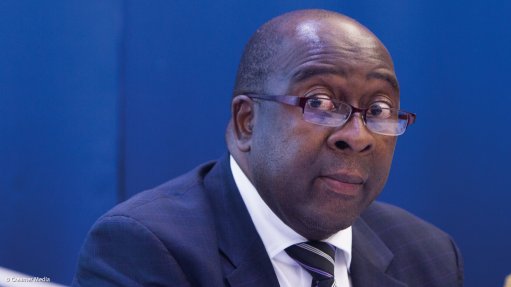
Nhlanhla Nene
Photo by: Duane
Since the dismissal of Minister Nhlanhla Nene as minister of finance and the accusations regarding the Gupta family’s involvement in ministerial appointments the value of the rand has been very volatile. However, this follows on a continuous trend of depreciation which has lasted many years. This is the view trade union Solidarity expressed today in response to the latest controversy concerning irregular influence on ministerial appointments in President Zuma’s cabinet.
Gerhard van Onselen, economics researcher at the Solidarity Research Institute (SRI), says Nene’s dismissal and the subsequent events dealt a major blow to the rand. However, it has played a fairly small role in the longer, underlying trend of rand depreciation which has been taking place since April 2011.
“Recent events contributed relatively little to the general trend of the depreciation of the rand during the past five years. Whereas the rand traded at R6,60 against the dollar in April 2011, a dollar now costs approximately R16. During this period the rand’s value has therefore depreciated by approximately 60%,” Van Onselen said.
Van Onselen says the ongoing weakening of the rand during the past few years can be attributed largely to South Africa’s unfavourable policy framework that cripples economic growth and the labour market.
“Although economies have run into trouble worldwide, and lower commodity prices, a stronger dollar and weak growth globally are putting more pressure on the South African economy and its currency, those external economic obstacles are not the main reasons for the local economic downturn and the weak currency,” Van Onselen said.
“In the long run a currency reflects the fundamental economic factors of the government that issues it. Those fundamental factors are mainly local factors and not external ones. Government determines the local policy environment that can stifle or stimulate economic growth,” Van Onselen added.
Van Onselen appealed to government to overturn harmful policies, thereby allowing the economy to grow and the rand to recover. “What is needed is a commitment to sensible reforms that favour freedom and a commitment to less government interference in the economy,” Van Onselen said.
Issued by Solidarity